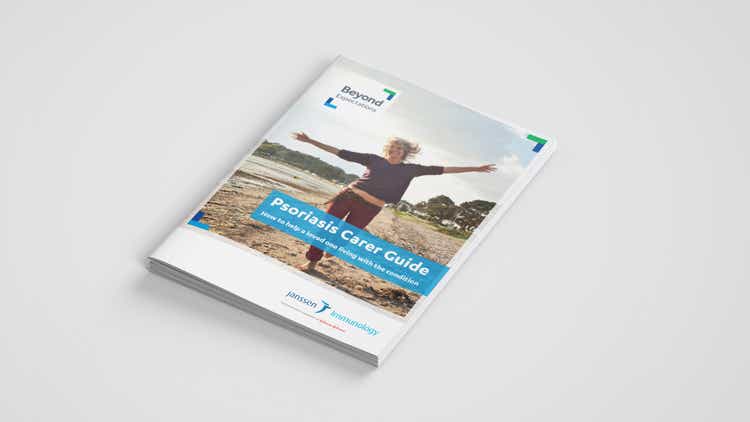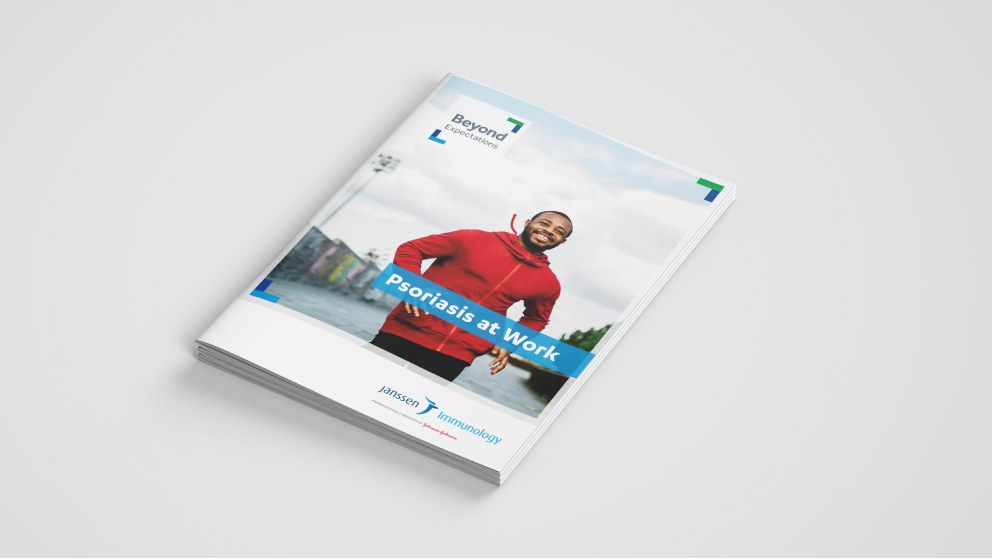Connecting with others, including other patients
Connecting with others

You might feel frustrated or embarrassed, miss out on social activities or have to take time off work because of your psoriatic arthritis.
Whether you have PsA or are supporting someone who does, there are things you can do to improve your personal or professional relationships.
Personal relationships
Psoriatic arthritis can affect relationships with your friends, family or romantic partner.
If you have PsA
Do things in your own time
New relationships are exciting, but may also be stressful at times. Stress can trigger flare-ups, so try to take things at a pace you’re comfortable with and explain your psoriatic arthritis to others.
Communication is key
Your family, friends or partner may be unfamiliar with psoriatic arthritis, so talk to them about how it affects you and what support you may need, and encourage them to read ‘What is PsA?’.
Be open about your insecurities and internal battles
Sometimes it may feel easier to hide difficult feelings, but consider opening up about how you feel about yourself, both physically and mentally. You may find a support group local to you through EUROPSO, the European patient psoriatic disease website.
Find a way to boost your confidence
Try to find an activity that makes you feel good about yourself and learn to accept compliments and enjoy the nice things people say about you. Try to see yourself through their eyes!
Find a way to make things work for you
There may be times when you need help from others, e.g. if a flare-up leaves you feeling too tired to do as many things as usual, so you may need support from friends or family.
If you’re in a relationship and in the middle of a flare-up, sex may be the last thing on your mind. Talk to your partner and find other ways of being romantic, like watching a film or cooking dinner together, or if you want to be intimate, do what you need to make yourself comfortable. Whether that is setting a date for sex, taking pain medication in advance, not taking on too much during the day, or building a sense of desire.
If you have a personal relationship with someone who has PsA
Don’t force the conversation
You might have questions about psoriatic arthritis, but be patient and considerate in the way you ask and talk about it, and never push for answers. Take time to educate yourself and prepare for those conversations.
Don’t take it personally
If your loved one withdraws from you, avoids socialising or cancels plans, try to understand that they’re probably not rejecting you and is likely to be a result of how they feel about themselves. This can be frustrating, but flare-ups could leave them feeling very uncomfortable and tired. Be patient and give them space if they need it, or suggest an alternative plan.
Don’t dismiss their feelings
It can be tempting to try and ‘cheer up’ someone who is feeling depressed or anxious about their PsA, but it may have the opposite effect. PsA can have an impact on mental health, and stress can trigger psoriatic arthritis symptoms. Read about PsA and mental health, and discover stress-busting tips. It’s also a good idea to encourage your loved one to talk about their feelings with their doctor, in case they need additional support.
Offer your support
Psoriatic arthritis can take a toll on the body and there may be times where your loved one needs your support. This could be as simple as helping with household chores during a flare-up. It might be useful to visit a patient support website to connect with other people with PsA and find out how they cope with the condition.
For some people, doctors’ appointments can be daunting so think about offering to support your loved one with this, or even going with. Discover tips to help your loved one make their consultations work for them, including those specific to virtual appointments via a phone or computer.

Maintaining good relationships can be difficult at the best of times, but adding a long-term condition into the mix may make things even more complicated. This guide aims to give practical advice on how to navigate different types of relationships when psoriatic disease is part of the picture.

Though it’s greatly appreciated by those who struggle with psoriatic disease, supporting someone with the condition can be tough. This guide aims to provide information on psoriatic disease and its impact, as well as advice on how best to support a loved one with the condition.
Professional relationships
If you have PsA
Consider being open about your needs at work
While you’re not legally obliged to tell anyone at work about your condition, you might prefer to share some information with your manager or human resources team if you feel it could affect your work at some point. Sharing some details could help your colleagues understand your needs and make adjustments to make your life at work a little easier.
Prioritise self-care
Stress can make PsA worse for some, so it’s important to take self-care seriously and plan ways to switch off and relax during stressful work periods. ‘Self-care’ means different things to different people, but it could include meditation, reading a book, listening to podcasts or taking a walk.
Create a healthy work environment
Arrange your work area in a way that minimises the impact of what you’re doing on your psoriatic arthritis, for example getting ergonomic support, or varying your activities to avoid sitting in one position or repeating an action for too long.
If you manage someone who has PsA
Have a conversation if PsA impacts their work
If the condition is affecting your employee’s work performance, gently talk about what measures might help them become more productive.
Understand they may overdo it at times
If your employee is worried about how people at work may view them, be aware that they may try to overcompensate, which could lead to exhaustion. Reassure them that while they do need to meet their work commitments, they shouldn’t go overboard.
Be accommodating of their schedule
If your employee with PsA needs to attend regular medical appointments, try to support them with a flexible working arrangement, or the ability to work from home, if suitable.
Understand that they are more than their PsA
Everyone has off-days, including people with psoriatic arthritis. Always focus on their performance at work, rather than their condition.

Managing a career can be hard enough, but alongside a condition like psoriatic disease might be particularly challenging. This guide gives useful tips on navigating the world of work with the condition.
Your relationship with your doctor

Be honest with your doctor
It’s important to let your healthcare professional know how you’re really feeling to ensure you’re on the right treatment for you, so that your PsA doesn’t get in the way of you living your life exactly as you choose. Don’t be afraid to explain exactly what support you need and what you’re hoping for from your treatment, so that you can discuss what’s possible and what options are available to you. It may help to make notes on this before your appointment, so you have something to refer to. Take a look at our tips to help you get the most from consultations by having a productive conversation during your next appointment.
TOP TIP
“I used to let psoriatic arthritis stop me from going about my life, but I refuse to let it get in the way anymore.”*
Ways to help you open up about your PsA
Talking about your PsA with others may be daunting, but it could make you feel free and boost your confidence. It can also help you get the support you need. The following may be helpful to start that conversation:
- Choose how you want to open up to others, such as email or face-to-face
- Decide on a time when neither you nor the other person are busy
- Stick to the facts about ‘What is PsA?’; ‘What causes PsA?’ and ‘What does PsA feel like?’, and share with others to help answer their questions
- Ask for support, e.g. devices to make your workspace more comfortable or protected time for scheduled skincare routines to keep your skin moisturised, or for students, extra support to get back into studies after time off or private space to change for sports - think about what it is that you need
- Have an objective in mind – do you need them to understand what you need, why you may feel down, why you sometimes can’t socialise, or something different?

Take a look at the EUROPSO patient website to find a support group local to you
You may be interested in

There isn’t a one-size-fits-all with PsA treatment – your doctor can help.

Make every moment of the consultation really count.

With COVID-19 part of all our lives, you might not always need to see your doctor in the flesh.
*Representative of patient experience
